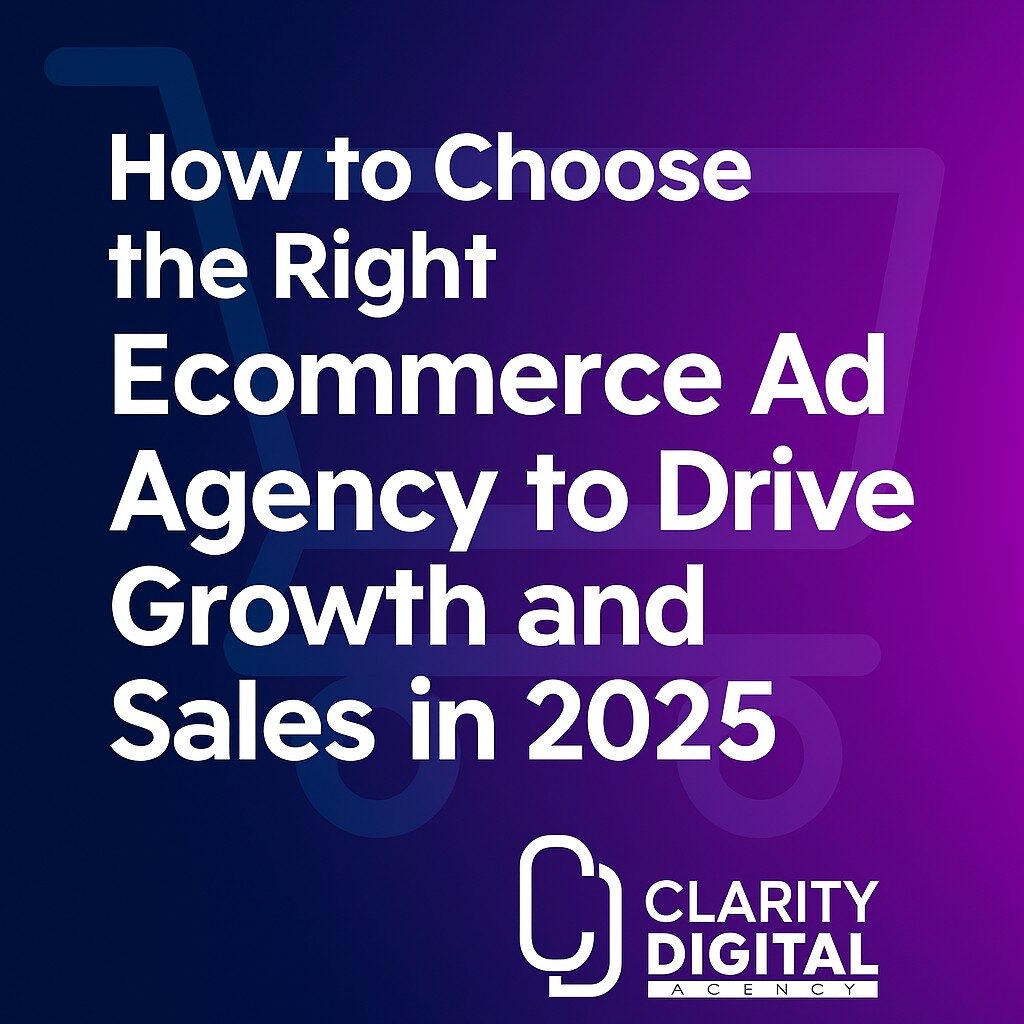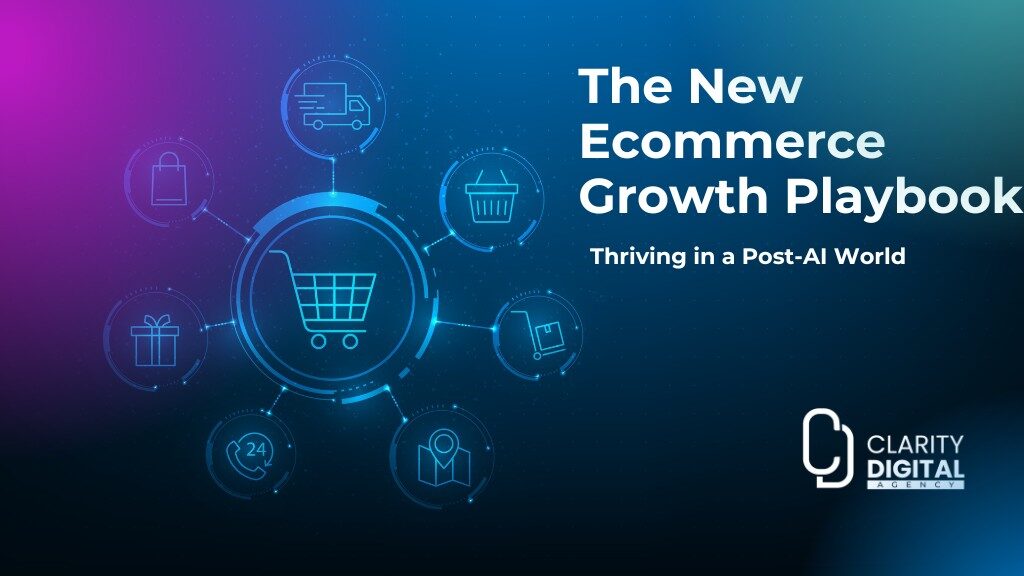The eCommerce landscape is changing all the time, and in many ways growing more competitive by the day. As more and more retailers turn exclusively to the Web to meet customers and generate sales, effective marketing becomes intensely critical, allowing retailers a way to distinguish themselves from the rest of the crowd.
There are plenty of viable eCommerce marketing and digital strategies that can lead to business growth, but it’s important to understand that the world of eCommerce marketing is ever in flux. Changing technologies and shifts in consumer preference lead to a fluid environment, and effective marketers will need to keep pace.
Understanding the Growth of the eCommerce Industry
To begin with, it’s worth stepping back to understand how the eCommerce industry itself is growing. This conveys something of the need for innovative and strategic eCommerce marketing efforts. Consider a few stats:
Global B2C eCommerce Growth:
On a global scale, retail eCommerce sales are forecast to reach an incredible $6.33 trillion in 2024. This represents an 8.76 increase just from last year! By 2027, that growth rate is expected to be just shy of $9 trillion.
Meanwhile, in the United States, eCommerce sales are expected to rise to $1.26 trillion by the end of the current calendar year. Again, this represents a significant rise, up from $1.1 trillion in 2023. The eCommerce space now accounts for approximately 16 percent of total retail sales in the US.
B2B eCommerce Growth
Now let’s consider B2B eCommerce in isolation. This market is projected to hit $20.9 trillion globally by the end of 2024. This surge can be attributed to the increasing adoption of digital channels, plus the growing preference for self-service purchasing among B2B buyers.
In North America alone, B2B eCommerce sales are expected to top $4.6 trillion by next year.
Digital Growth in B2B eCommerce
One more note: By 2025, it’s projected that four out of five B2B sales interactions will occur through digital channels. This underscores the increasing demand for a B2C-like experience within the B2B space, where user-friendliness and self-service reign supreme.
eCommerce Marketing: Investing in the Future
Needless to say, the surge in eCommerce sales has led to greater and greater investments in eCommerce marketing. Consider a few of the most notable trends:
Global Digital Marketing Spend
It’s anticipated that businesses will spend $696.96 billion on digital marketing in the year 2024. This reflects the growing importance of online channels for targeting and engaging the desired consumers.
Social media is an especially important piece of this puzzle, with 74 percent of companies planning to boost their investment in social platforms during 2024. This social media surge is driven by the ability of Facebook, Instagram, TikTok, and the like to reach specific demographics through carefully targeted content.
AI Integration
We can’t talk about eCommerce marketing trends without discussing the rising importance of AI. Over 61 percent of marketers now deploy AI-driven tools to personalize content and optimize campaigns. From chatbots to analytics to content iteration, AI offers many uses within the digital marketing arena.
Search Engine Optimization and Content Marketing
Of course, SEO remains a cornerstone of digital strategies. In 2025, businesses are expected to spend $79.27 billion on SEO services, a stat that underscores the critical role of search engines in driving organic traffic and conversion rates.
Another important trend that has ramifications for eCommerce marketing is personalization. Studies show that 72 percent of consumers expect personalized experiences, making it essential for businesses to tailor their content to accommodate their audiences.
Additional Content Marketing Trends
There are a few other content trends that are relevant to eCommerce marketing, starting with video. Video content is dominant, with 86 percent of businesses using video as a key part of their strategies. Short-form videos, live streaming, and video-based advertising are all essential for engaging audiences.
Influencer marketing is also a big deal, and in fact it’s expected to top $20 billion annually by the end of this year. Influencers provide brands everywhere with an avenue to reach niche audiences, and to establish credibility and trust.
Mobile and Programmatic Advertising
Still another trend that matters for eCommerce marketing: Mobile advertising is projected to account for over about 70 percent of all digital ad spend in 2024. This shouldn’t come as a surprise: Mobile devices have long been the dominant mode for accessing digital content.
Meanwhile, programmatic advertising is set to represent 88 percent of all digital display ad spend in 2024. More and more companies rely on real-time bidding to optimize ad placements, allowing them to reach audiences as cost-effectively as can be.
The Role of Artificial Intelligence in eCommerce Marketing
Now let’s get back to AI, as there’s much left to say about the advent of AI and its effect on eCommerce marketing.
AI-Powered Automation
For one thing, AI-driven automation tools streamline marketing processes, from segmentation to content delivery. Markets can therefore work with greater efficiency, but also with heightened precision.
And AI-powered predictive analytics let businesses anticipate customer behavior. By analyzing vast quantities of data, AI can predict trends and identify opportunities in the market that might be hard to pick up on by any other means.
Chatbots and AI in Customer Support
In eCommerce, customer support is imperative. AI-powered chatbots are becoming a staple in this field. After all, they provide 24/7 assistance and handle routine inquiries with ease. This leads to a more frictionless consumer experience, and it frees up the time of human agents to handle more complex inquiries.
Parter with Clarity Digital as Your Trusted eCommerce Marketing Agency
As we consider the future of eCommerce marketing, it’s clear that staying ahead of the curve requires a deep understanding of emerging trends, plus the ability to pivot quickly. Whether it’s leveraging AI to enhance customer experience or navigating the complex world of B2B eCommerce, businesses need a partner who can guide them through these shifts and changes.
Enter Clarity Digital, a trusted eCommerce marketing agency with a proven track record of experience. We’ve been at the forefront of eCommerce marketing and digital transformation for years. Our team of experts understands the nuances of both B2C and B2B markets, and we are equipped with the latest tools and strategies to help eCommerce companies thrive in the digital age. From comprehensive SEO services and cutting-edge AI integrations to personalized content marketing and data-driven ad strategies, we have the experience and expertise to drive your success.
Partner with Clarity Digital to navigate the future of eCommerce marketing. Together, we can transform your business and unlock new growth opportunities in the post-AI era.





